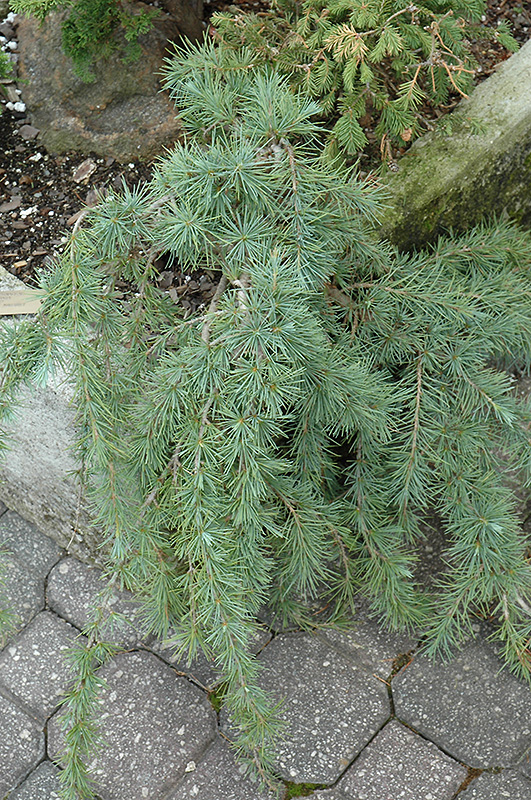>> Home
Blue Snake Dwarf Deodar Cedar
Cedrus deodara 'Blue Snake'
Height: 10 feet
Spread: 8 feet
Sunlight:
![]()
Hardiness Zone: 6
Other Names: Himalayan Cedar
Description:
A dwarf variety with pendulous branches that will snake along the ground, and shimmering silvery-blue needles; best used for low groundcover but when left on its own will spire upwards with long pedulous branches reaching downward; a lovely accent cedar
Ornamental Features
Blue Snake Dwarf Deodar Cedar is a dwarf conifer which is primarily valued in the landscape or garden for its characteristic tiered habit of growth. It has attractive silvery blue evergreen foliage. The needles are highly ornamental and remain silvery blue throughout the winter.
Landscape Attributes
Blue Snake Dwarf Deodar Cedar is a multi-stemmed evergreen shrub with a stunning habit of growth which features almost oriental horizontally-tiered branches. It lends an extremely fine and delicate texture to the landscape composition which can make it a great accent feature on this basis alone.
This is a relatively low maintenance shrub, and usually looks its best without pruning, although it will tolerate pruning. Deer don't particularly care for this plant and will usually leave it alone in favor of tastier treats. It has no significant negative characteristics.
Blue Snake Dwarf Deodar Cedar is recommended for the following landscape applications;
- Accent
- General Garden Use
Planting & Growing
Blue Snake Dwarf Deodar Cedar will grow to be about 10 feet tall at maturity, with a spread of 8 feet. It has a low canopy with a typical clearance of 1 foot from the ground, and is suitable for planting under power lines. It grows at a medium rate, and under ideal conditions can be expected to live for 80 years or more.
This shrub should only be grown in full sunlight. It is very adaptable to both dry and moist growing conditions, but will not tolerate any standing water. It may require supplemental watering during periods of drought or extended heat. It is not particular as to soil type or pH. It is somewhat tolerant of urban pollution, and will benefit from being planted in a relatively sheltered location. This is a selected variety of a species not originally from North America.
